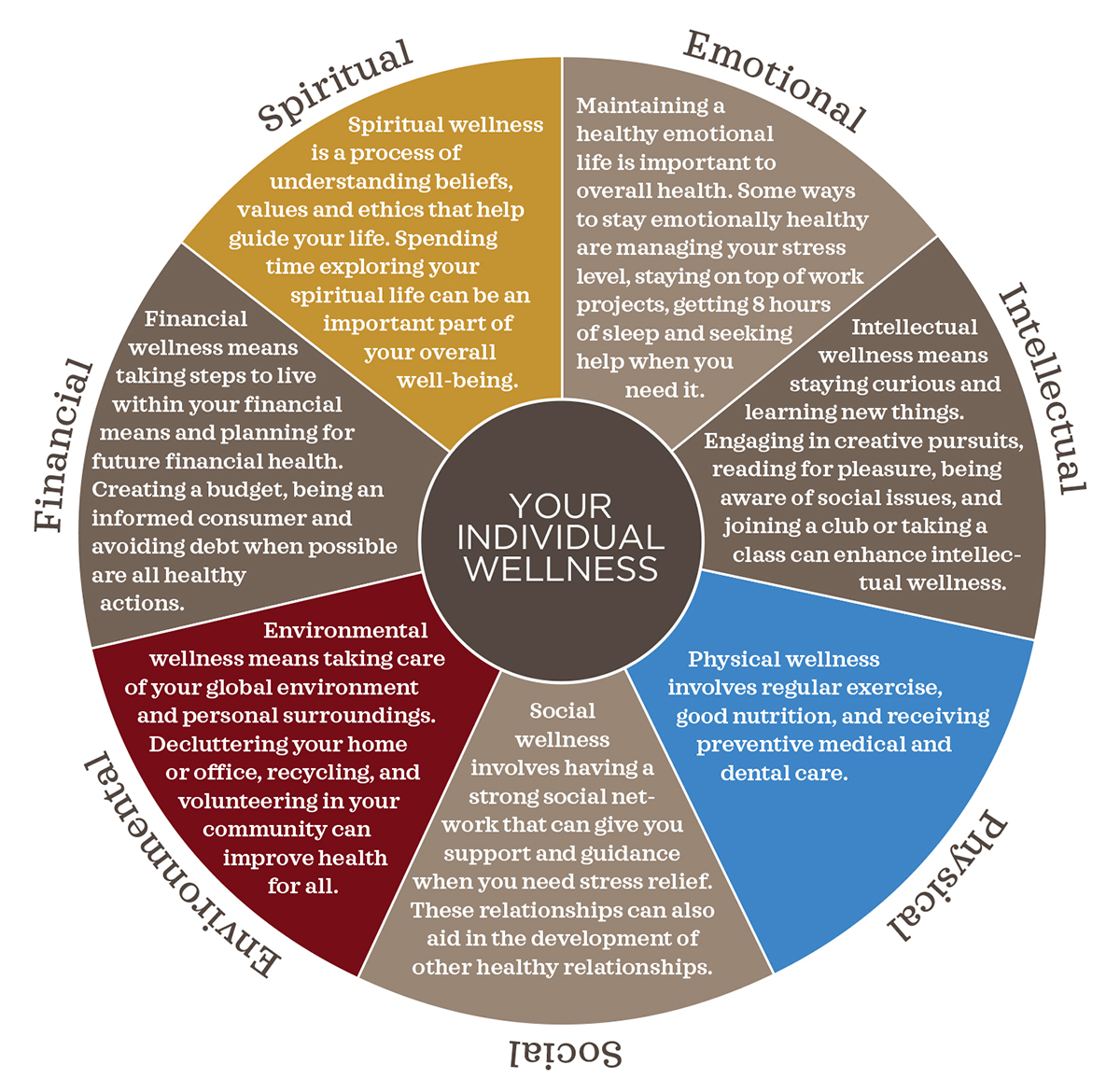How to Develop Compassionate Coaching
Use this scientific look at the personality traits associated with compassion to integrate them into your wellness coaching every day.

While fitness coaching once focused primarily on physiological changes in clients, its scope has widened to include a more holistic view. One example of this evolution is the increase in attention placed on compassionate coaching to produce desirable behavior change.
Compassionate coaching involves recognizing the needs of another person, feeling empathy for that individual and taking action to help—all of which fall outside of the traditional physical-training realm. Boyatzis, Smith & Beveridge (2013) suggest that coaching with compassion creates the psychophysiological state necessary for others to be open to trying new things and, thus, is a driver of desirable behavior change over time.
One of the most important aspects of developing compassionate coaching practices is the examination of personality traits that foster them. This article examines the five most referenced traits (known as the Big Five) and how they influence personal and professional life, particularly with respect to showing compassion. After this, a wellness guide is presented to help fitness coaches establish compassionate behavior practices based on the Big Five. It is worth noting that these strategies can improve our interactions not just with clients and colleagues but also with other important and influential people in our lives.
Personality Research for Compassionate Coaching: Then and Now
A considerable amount of research has been conducted in the area of personality development. Previous research and testing tools centered on personality types. These placed individuals into specified boxes of binary personality expression (e.g., extrovert or introvert) that were largely viewed as hardwired at birth. One example was the Myers-Briggs Type Indicator (MBTI) test.
We have learned, however, that personality is much more of a malleable and fluid expression over time—and that it is heavily influenced on a daily, monthly and yearly basis by sociocultural factors, such as family, friends, environment, job and more (Hardy 2020; Lim 2020). For example, friendship development through teenage years and into adulthood significantly influences malleability of personality and the ensuing compassionate behavioral responses toward others (Harris & Vazire 2016).
More recent research has led to the identification of five personality traits, which American personality psychologist Lewis Goldberg (1993) built upon to create the Big Five model widely subscribed to today. These traits are openness, conscientiousness, extraversion, agreeableness and neuroticism, with each person falling somewhere on a spectrum for each trait (John & Srivastava 1999; Goldberg 1993). The Big Five can be more easily recalled using the acronym OCEAN.
See also: Starting A Health Coaching Business
An Overview of the Big Five Model
Below is an overview of the traits and subtraits associated with high and low levels of each of the Big Five. Note that the items in gold are those that have been positively associated with compassionate coaching behaviors and abilities, as will be discussed later in this article.
In examining this table, it is not surprising that our levels of the Big Five personality traits affect nearly every aspect of our daily lives, including work performance, leadership skills, relationships, well-being and more—and that these and other factors, in turn, affect our expression of those traits. To learn more about how relationships help shape personality, see “How Relationships Can Build Compassion,” below.

The Big Five and the Fitness Profession
Research shows that the ability to engage in compassionate practices is a positive outcome of being a conscientious, agreeable, emotionally stable and open-minded individual. Here are some examples of how these four Big Five traits relate to compassionate coaching:
Entrepreneurial Intention
The decision to become an entrepreneur is a large part of the fitness coaching business. A 2018 report by Tuncer Şahin indicates that openness to new experiences is the main predictor of entrepreneurial intention. In later research, they added that self-efficacy was also highly correlated with entrepreneurial intention (Şahin, Karadağ & Tuncer 2019).
Job Performance
According to Sackett & Walmsley (2014), agreeableness and conscientiousness appear to be the most important personality traits for predicting success in various levels of jobs, and a meta-analysis of 92 research studies indicated that conscientiousness is the most important factor in overall job performance (Wilmot & Ones 2019). Furthermore, high levels of conscientiousness seem to be specifically important in positions where interactions with colleagues and customers are a large part of the job.
Transformational Leadership
Transformational leadership skills include leading with inspiration, vision and cooperation with team members while also finding value in commitment, shared goals and innovation. In research conducted by Simic et al. (2017), the authors concluded that high levels of agreeableness and conscientiousness are predictive of transformational leadership skills. The development and execution of transformational leadership skills are essential to the growth of compassion in coaching to create behavioral change.
Compassionate Coaching
Building on Sackett & Walmsley’s contention about the importance of agreeableness and conscientiousness in the workplace, Homan & Sirois (2017) found that people who exhibit self-compassion, kindness, acceptance of flaws and mindfulness promote healthy behaviors among themselves and others. Furthermore, high levels of conscientiousness seem to be specifically important in customer service positions and healthcare positions where interactions with colleagues and customers are a large part of the job—just as they are in the fitness coaching profession.
See also: How to Succeed at Online Health Coaching
A Wellness Guide for Building Compassionate Coaching

Regular practice of wellness habits can build a stronger sense of compassion in the fitness professional.
To help fitness professionals exhibit consistent compassionate coaching practices, a guide is provided below. This guide integrates Big Five personality traits with components of the Wellness Wheel—a model that represents various dimensions of wellness as spokes on a circle. The dimensions included here are spiritual, physical, emotional, career, intellectual, environmental, social (acronym: SPECIES).
Following is a brief review of each of these wellness areas, along with specific actions fitness professionals can take. Each action draws on one of these Big Five traits associated with compassion: openness, conscientiousness, agreeableness and emotional stability. Regular practice of these habits can build a stronger sense of compassion in the fitness professional, which, in turn, is likely to have a positive impact on relationships in all areas of life.
Spiritual Wellness
Spiritual wellness refers to our awareness and actions in several outlets, including—but not limited to—religion, meditation, nature and life reflection. Spiritual wellness is fast growing in its importance and depth of desire for humans. A healthy spiritual practice provides comforting coping mechanisms for the journey of daily life. Furthermore, spiritual wellness provides a sense of meaning and purpose to human existence.
Here are some ways to nurture your spirit:
- Be open to studying and learning about different spiritual resources and opportunities from various cultures and countries.
- Be conscious of how spirituality influences others’ views of and involvement in health and wellness.
- Be conscious of your own concept of meaning and purpose within your fitness and wellness career.
- Be agreeable to having discussions with colleagues, clients, friends and family about the role that spirituality plays in their lives and their decisions to be physically active.
- Seek discussions and interactions with others who do not share your views of spirituality.
Physical Wellness
Physical wellness is associated with caring for our physical bodies by participating in regular physical activity, following individualized nutrition approaches, and optimizing sleep opportunity and time. The optimal individualized balance of these components of physical wellness is critical to our personal health responsibility and our responsibility to others.
Here are some thoughts on how to nurture your body:
- Be open to seeking out a variety of physical activity experiences.
- Be conscientious about meeting your individual nutrition and sleep needs.
- Be agreeable to working out with colleagues and friends intermittently.
- Be amenable to working with special populations and those with different body types.
- Listen to your body and take time to rest when you need it.
Emotional Wellness
Emotional wellness refers to our ability to be aware of and make decisions to manage our emotional stability and self-care. Being aware of positive and negative emotions—and being able to cope with them—is critical to overall health and wellness.
How do you nurture your emotional IQ?
- Be open to scheduling an extra session per week with clients to discuss pertinent emotional aspects of their lifestyle, including their relationships with family, friends and colleagues.
- Be conscientious of fostering positive, meaningful, genuine and long-lasting relationships with people within and outside of the health and fitness industry.
- Be open to seeking professional and collegial emotional support and comfort during difficult times—and be open to providing the same for others.
- Be agreeable to accepting your mistakes and celebrating your victories in life.
- Seek to exhibit gratitude, sympathy and empathy in relating to other people.
Career Wellness
Career (aka occupational) wellness refers to our ability to effectively balance work and personal pursuits. Financial wellness is one element, but the focus of this wellness component is to find a career that is not just financially rewarding but also fulfilling socially and emotionally.
- Here are some ideas on how to nurture yourself professionally:
- Be open to different coaching options within the health and wellness field that will challenge you but also help you be more vulnerable.
- Be conscious of how you conduct your business and project professionalism to others.
- Be agreeable to serving or donating your time to various causes within fitness and wellness.
- Be willing to engage in consistently meaningful mentorship with colleagues in the fitness and wellness industry.
Intellectual Wellness
Intellectual wellness involves participation in mentally stimulating activities. These activities have the goal of increasing our knowledge, skill and curiosity in relation to both ourselves and others. Intellectual wellness is often associated with cultural, academic and personal-skill pursuits.
Consider these suggestions for nurturing your mind:
- Be open to seeking out new, reliable sources of information related to fitness coaching practices and techniques.
- Be conscientious in terms of listening and taking in information from various reputable experts in the fitness industry.
- Be agreeable to exploring different cultural and ethnocentric avenues to learn how diverse populations perceive health and wellness.
- Collaborate and interact with colleagues on seminars, workshops and conference presentations.
- Exhibit enthusiasm for research and development on new modalities, methodologies and practices in the fitness industry.
Environmental Wellness
Environmental wellness refers to our awareness and actions related to the well-being and sustainability of our planet. These actions include using clean and renewable energy sources, conserving the natural environment, recycling, eating foods that are locally grown and in season, and using nontoxic cleaning solutions. Environmental wellness also encompasses caring for our personal environment by maintaining a clean, organized space in which to live and work.
Here are some ways to nurture your surroundings:
- Be open to learning about the impact of your decisions and actions on the environment.
- Be open to utilizing more outdoor, nature-based spaces for health and wellness practices.
- Be conscious of the types of products and equipment you use in your health and wellness practice that may contribute to a less healthy environment.
- Be agreeable to seeking alternatives to electrically powered exercise equipment for use with clients.
- Be mindful of creating an organized, presentable and inviting space for your work with clients.
- Seek participation in community groups and organizations focused on environmental education and practices.
Social Wellness
Social wellness refers to how we interact in the various types of relationships in our lives. These include family, friends, colleagues, associates and significant others. In this aspect of wellness, success is defined by how we connect, nurture and grow those relationships.
Practice these tips to nurture your social wellness:
- Be open to scheduling regular connection time (both in person and virtually) with colleagues, family, friends and your significant other.
- Be conscientious about being on time and being present with important people in your life.
- Be agreeable to attending yearly conferences and setting up meetings with colleagues outside of these conferences.
- Practice self-reflection in relation to your social needs (both personal and professional).
See also: Changing Behavior Changes Lives

Continuing the Cycle in Compassionate Coaching
Ultimately, the goal in any relationship is to interact in a genuine, meaningful and honest way. The approach outlined in this article allows us to foster positive relationship-building practices that are anchored in compassion, empathy and kindness. If we can operate within this approach as fitness professionals, then we will most certainly set an example that will resonate well beyond our business.
How Relationships Can Build Compassion
Relationships—both personal and professional—play a major role in the development of compassionate behavioral practices. Here is some research on the Big Five personality traits as they relate to parenting, friendship, romantic partnerships and management.
Parents. Higher levels of agreeableness, openness, conscientiousness and extraversion and lower levels of neuroticism have been associated with more warmth in parenting as well as behavioral control of children (Prinzie et al. 2009).
Friends. Harris & Vazire (2016) indicate that a high level of agreeableness and emotional stability (i.e., lower levels of neuroticism) has consistent positive effects on forming and maintaining friendships.
Significant others. High levels of emotional stability lead to more emotional commitment and foster traits associated with agreeableness, including trust, cooperation, kindness and consideration for one’s partner (O’Brien et al. 2008).
Supervisors. Smith & Canger (2004) suggest that supervisors who are agreeable and emotionally stable often influence employees to have a positive association with their work. However, those with overly high levels of conscientiousness and neuroticism have a negative effect on employee attitudes.
References
Boyatzis, R.E., Smith, M.L., & Beveridge, A. 2013. Coaching with compassion. The Journal of Applied Behavioral Science, 49 (2), 153–78.
Goldberg, L.R. 1993. The structure of phenotypic personality traits. The American Psychologist, 48 (1), 26–34.
Hardy, B. 2020. Don’t let your children take the Myers-Briggs test. Psychology Today. Accessed Mar. 29, 2021: psychologytoday.com/us/blog/quantum-leaps/202005/dont-let-your-children-take-the-myers-briggs.
Harris, K., & Vazire, S. 2016. On friendship development and the Big Five personality traits. Social and Personality Psychology Compass, 10 (11), 647–67.
Homan, K.J., & Sirois, F.M. 2017. Self-compassion and physical health: Exploring the roles of perceived stress and health-promoting behaviors. Health Psychology Open, 4 (2), 1–9.
John, O.P., & Srivastava, S. 1999. The Big Five trait taxonomy: History, measurement, and theoretical perspectives. In L.A. Pervin & O.P. John (Eds.), Handbook of Personality: Theory and Research (2nd ed., pp. 102–38). NY: Guilford Press.
Lim, A.G.Y. 2020. The Big Five personality traits. SimplyPsychology. Accessed Apr. 1, 2021: simplypsychology.org/big-five-personality.html.
O’Brien, R.S., et al. 2008. Big five personality characteristics and commitment levels in romantic relationships. Modern Psychological Studies, 13 (2), 110–25.
Prinzie, P., et al. 2009. The relations between parents’ Big Five personality factors and parenting: A meta-analytic review. Journal of Personality and Social Psychology, 97 (2), 351–62.
Sackett, P.R., & Walmsley, P.T. 2014. Which personality attributes are most important in the workplace? Perspectives on Psychological Science, 9 (5), 538–51.
Şahin, F., Karadağ, H., & Tuncer, B. 2019. Big five personality traits, entrepreneurial self-efficacy and entrepreneurial intention: A configurational approach. International Journal of Entrepreneurial Behavior & Research, 25 (6), 1188–211.
Simic, J., et al. 2017. The relationship between personality traits and managers’ leadership styles. European Journal of Social Science Education and Research, 4 (6), 194–99.
Smith, M.A., & Canger, J.M. 2004. Effects of supervisor “Big Five” personality on subordinate attitudes. Journal of Business and Psychology, 18, 465–81.
Tuncer, B., & Şahin, F. 2018. Big Five personality traits and entrepreneurial intention: The moderating role of social valuation. ICABM2018 International Conference of Applied Business and Management, ISAG – European Business School, Porto, Portugal, June 21–22.
Wilmot, M.P., & Ones, D.S. 2019. A century of research on conscientiousness at work. Proceedings of the National Academy of Sciences, 116 (46), 23004–010.
Darian Parker, PhD
Darian Parker, PhD, earned his doctorate in sports education leadership with an emphasis in behavior modification, his master’s and bachelor’s degrees in kinesiology, and his personal trainer certification through the NSCA. During his 20 years in the fitness and wellness industry, he has worked extensively in both the academic and private club sector as a director of education for a Career College, general manager of a high-end luxury residential fitness club and national director of fitness for a global leisure management company. Currently, Darian is the co-owner of Epic Leisure Management and has a live virtual personal training business where he works with many prominent U.S. business leaders. Darian is also the host of Dr. D's Social Network, a podcast devoted to genuine, open and honest conversations with people from all over the world.





